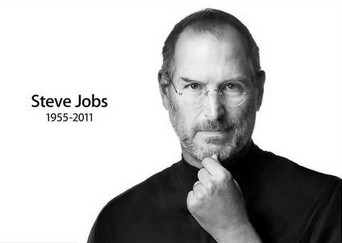The exponential growth of this industry was correlated with the phenomenon famously discovered by Moore, who in 1965 drew a graph of the speed of integrated circuits, based on the number of transistors that could be placed on a chip, and showed that it doubled about every two years, a trajectory that could be expected to continue. This was reaffirmed in 1971, when Intel was able to etch a complete central processing unit onto one chip, the Intel 4004, which was dubbed a “microprocessor.” Moore’s Law has held generally true to this day, and its reliable projection of performance to price allowed two generations of young entrepreneurs, including Steve Jobs and Bill Gates, to create cost projections for their forward-leaning products.
半導體產(chǎn)業(yè)的爆炸式發(fā)展與摩爾發(fā)現(xiàn)的著名現(xiàn)象有關(guān),他在1965年繪制的一張圖表顯示,集成電路每個芯片所能容納的晶體管數(shù)目大約每兩年就會翻一番,性能也會提升一倍,而且這一趨勢還會繼續(xù)。這一發(fā)現(xiàn)在1971年得到了再一次證實,當時英特爾公司成功地將一個完整的中央處理器蝕刻到了一塊芯片上——制成了英特爾4004——他們稱之為“微處理器”。摩爾定律直至今日依然基本準確,它對產(chǎn)品性價比的可靠預測讓包括史蒂夫·喬布斯和比爾·蓋茨在內(nèi)的兩代年輕企業(yè)家可以對自己的未來產(chǎn)品作出成本推測。
The chip industry gave the region a new name when Don Hoefler, a columnist for the weekly trade paper Electronic News, began a series in January 1971 entitled “Silicon Valley USA.” The forty-mile Santa Clara Valley, which stretches from South San Francisco through Palo Alto to San Jose, has as its commercial backbone El Camino Real, the royal road that once connected California’s twenty-one mission churches and is now a bustling avenue that connects companies and startups accounting for a third of the venture capital investment in the United States each year. “Growing up, I got inspired by the history of the place,” Jobs said. “That made me want to be a part of it.”
 芯片產(chǎn)業(yè)賦予該地區(qū)一個全新的名字。從1971年1月起,每周發(fā)行的專業(yè)類報紙《電子新聞》(ElectronicNews)的專欄作家唐·赫夫勒(DonHoefler),開始了一組系列報道,標題為“美國眭谷”。這一綿延40英里的圣克拉拉谷,從南舊金山穿過帕洛奧圖,一直延伸到圣何塞,貫穿其中的是該地區(qū)的商業(yè)主干道國王大道”(ElCaminoReal),這條道路曾經(jīng)連接著加州的21所教會,而現(xiàn)在,這條繁忙的道路所連接的企業(yè)和新興公司每年吸引著全美1/3的風險投資。“成長于此,我受到了這里獨特歷史的啟發(fā),”喬布斯說,“這讓我很想成為其中的一分子。”
芯片產(chǎn)業(yè)賦予該地區(qū)一個全新的名字。從1971年1月起,每周發(fā)行的專業(yè)類報紙《電子新聞》(ElectronicNews)的專欄作家唐·赫夫勒(DonHoefler),開始了一組系列報道,標題為“美國眭谷”。這一綿延40英里的圣克拉拉谷,從南舊金山穿過帕洛奧圖,一直延伸到圣何塞,貫穿其中的是該地區(qū)的商業(yè)主干道國王大道”(ElCaminoReal),這條道路曾經(jīng)連接著加州的21所教會,而現(xiàn)在,這條繁忙的道路所連接的企業(yè)和新興公司每年吸引著全美1/3的風險投資。“成長于此,我受到了這里獨特歷史的啟發(fā),”喬布斯說,“這讓我很想成為其中的一分子。”
Like most kids, he became infused with the passions of the grown-ups around him. “Most of the dads in the neighborhood did really neat stuff, like photovoltaics and batteries and radar,” Jobs recalled. “I grew up in awe of that stuff and asking people about it.” The most important of these neighbors, Larry Lang, lived seven doors away. “He was my model of what an HP engineer was supposed to be: a big ham radio operator, hard-core electronics guy,” Jobs recalled. “He would bring me stuff to play with.” As we walked up to Lang’s old house, Jobs pointed to the driveway. “He took a carbon microphone and a battery and a speaker, and he put it on this driveway. He had me talk into the carbon mike and it amplified out of the speaker.” Jobs had been taught by his father that microphones always required an electronic amplifier. “So I raced home, and I told my dad that he was wrong.”
像大多數(shù)孩子一樣,他開始受身邊大人們的熱情影響。“住在我周圍的父親們大都研究的是很酷的東西,比如太陽能光伏電池和雷達,”喬布斯回憶道,“我對這些東西充滿了驚奇,經(jīng)常向他們問這問那。”這些鄰居中最重要的一個人,拉里·朗(LarryLang),跟喬布斯家隔了7戶人家。“他是我心中惠普工程師的標準形象:超級無線電愛好者、鐵桿電子迷,他會帶東西給我玩。”當我們走到朗的老房子時,喬布斯指著車道說:“他把一個碳精話筒、一塊蓄電池和一個揚聲器放在車道上。他讓我對著話筒說話,聲音就通過揚聲器放大出來了。”喬布斯的父親曾經(jīng)告訴過他,話筒一定要有電子放大器才能工作。所以我跑回家,告訴父親他錯了。”
“No, it needs an amplifier,” his father assured him. When Steve protested otherwise, his father said he was crazy. “It can’t work without an amplifier. There’s some trick.”
“不對,肯定需要放大器。”父親的口氣很肯定。當史蒂夫提出異議時,父親說他瘋了。“沒有放大器是不可能工作的,這其中是有訣竅的。”
“I kept saying no to my dad, telling him he had to see it, and finally he actually walked down with me and saw it. And he said, ‘Well I’ll be a bat out of hell.’”
“我不停地對我父親說不是那樣的,讓他親眼去看看,最終他跟我一起走到鄰居家,看到了。他說:‘我還是趕緊走人吧。’”
Jobs recalled the incident vividly because it was his first realization that his father did not know everything. Then a more disconcerting discovery began to dawn on him: He was smarter than his parents. He had always admired his father’s competence and savvy. “He was not an educated man, but I had always thought he was pretty damn smart. He didn’t read much, but he could do a lot. Almost everything mechanical, he could figure it out.” Yet the carbon microphone incident, Jobs said, began a jarring process of realizing that he was in fact more clever and quick than his parents. “It was a very big moment that’s burned into my mind. When I realized that I was smarter than my parents, I felt tremendous shame for having thought that. I will never forget that moment.” This discovery, he later told friends, along with the fact that he was adopted, made him feel apart—detached and separate—from both his family and the world.
這件事在喬布斯的心中印象深刻,因為這是他第一次意識到父親不是萬事通。然后,他發(fā)現(xiàn)了一件讓他更加不安的事情:自己比父母還要聰明。他一直很仰慕父親的智慧和才能。“他沒有受過良好的教育,但我以前一直認為他特別聰明。他不怎么看書,卻會做很多事情。機械方面的東西他幾乎樣樣精通。”然而碳精話筒這件事,喬布斯說,讓他的想法開始動搖,他意識到自己實際上比父母更聰明、更敏捷。“這種想法出現(xiàn)在腦海中,對我來說是一個重大的時刻。當我意識到自己比父母更聰明時,我為自己有這樣的念頭而感到異常羞愧。我永遠忘不了那一瞬間。”他后來告訴朋友,這個發(fā)現(xiàn),再加上自己是被領(lǐng)養(yǎng)的這個事實,讓他覺得自己有些孤立——與世隔絕一般——脫離了父母,也脫離了世界。
Another layer of awareness occurred soon after. Not only did he discover that he was brighter than his parents, but he discovered that they knew this. Paul and Clara Jobs were loving parents, and they were willing to adapt their lives to suit a son who was very smart—and also willful. They would go to great lengths to accommodate him. And soon Steve discovered this fact as well. “Both my parents got me. They felt a lot of responsibility once they sensed that I was special. They found ways to keep feeding me stuff and putting me in better schools. They were willing to defer to my needs.”
此后不久,他又意識到了另一件事情。他不僅發(fā)現(xiàn)自己比父母聰明,還發(fā)現(xiàn)其實父母是知道這一點的。保羅和克拉拉是一對很慈愛的父母,他們愿意改變自己的生活來適應這個非常聰明也非常任性的兒子。他們愿意竭盡全力去適應他,給他特別的對待。很快,史蒂夫也發(fā)現(xiàn)了這點。“父母都很了解我。他們意識到我的不同尋常之后就有了很強的責任感。他們想盡辦法讓我學到更多東西,送我去好學校。他們愿意滿足我的需求。”
So he grew up not only with a sense of having once been abandoned, but also with a sense that he was special. In his own mind, that was more important in the formation of his personality.
所以在他長大的過程中,伴隨他的不僅僅是曾經(jīng)被遺棄的感覺,還有一種自己不同于常人的感覺。在他心中,后者在他的個性形成中扮演的角色更為重要。











